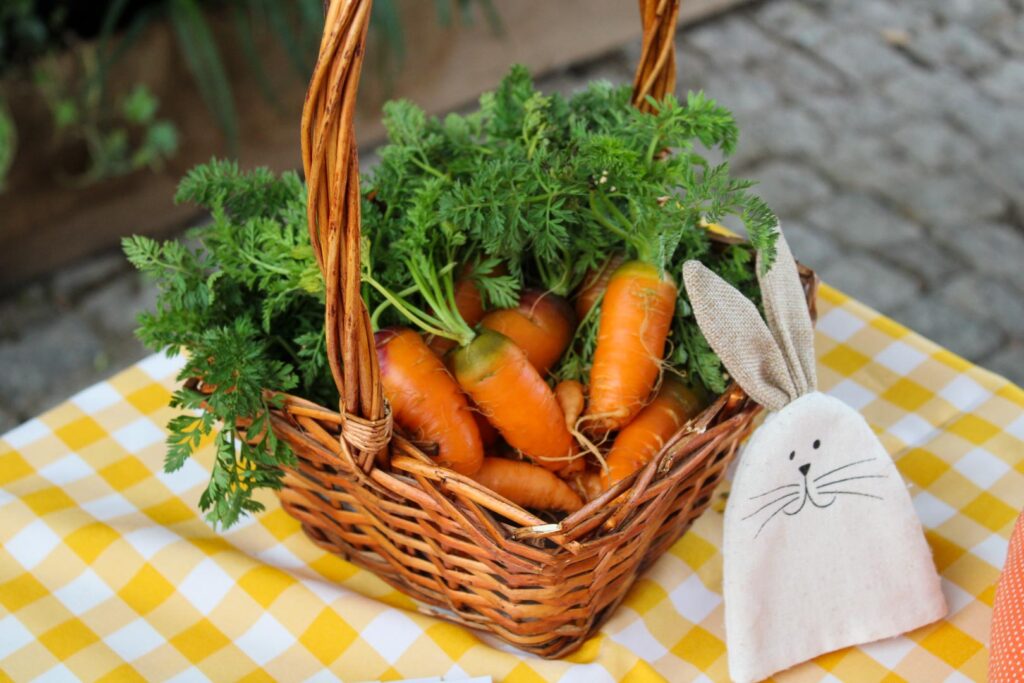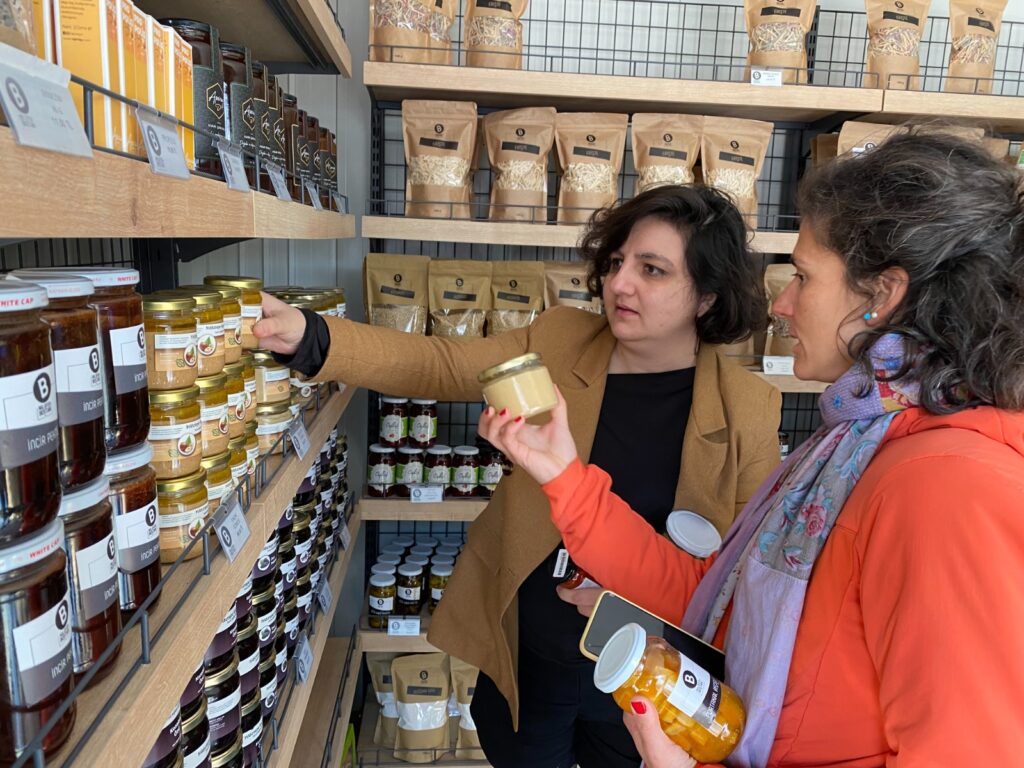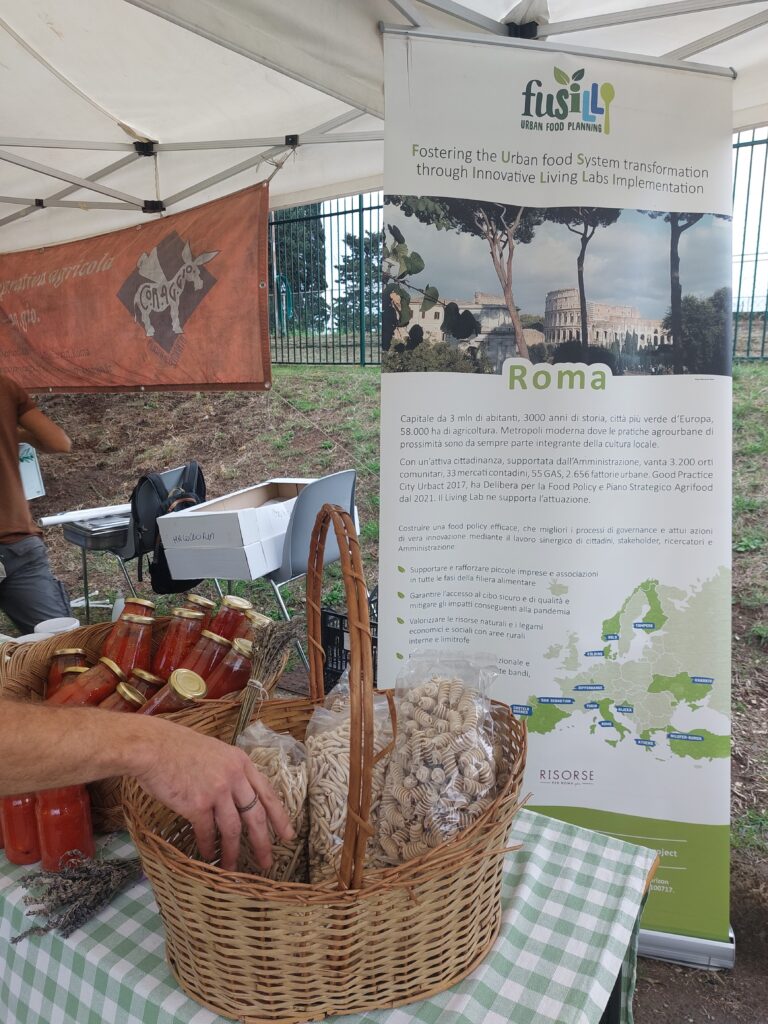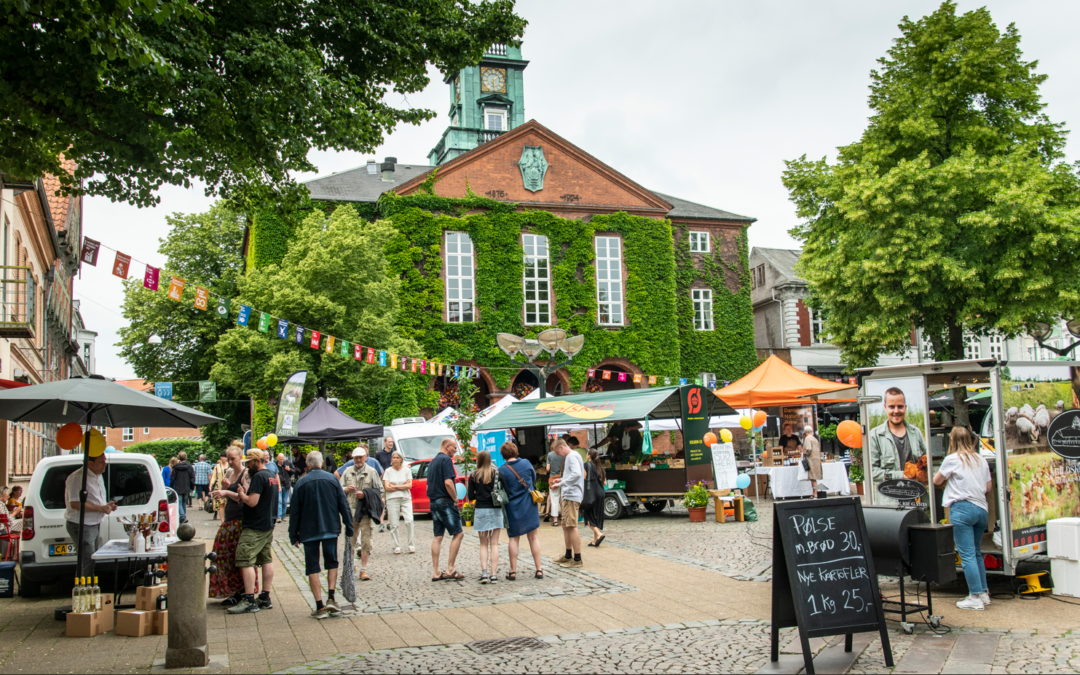In a world that is increasingly globalized, the trend to consume local products and opt for short distribution chains has become increasingly relevant. This approach not only has economic implications but also environmental and social ones, positively impacting citizens and the planet. However, this trend is far from becoming our routine food shopping practice.
According to data published by the Spanish Ministry of Agriculture, Fisheries, and Food in 2021, food is primarily distributed through supermarkets, hypermarkets, and discount stores, reaching 73% of sales, while traditional shops distribute 18% of food1. At the European level, direct sales between farmers and consumers only represent 2% of the fresh food market2.

Some forms of selling local or proximity products through short distribution chains include farmers’ markets, direct on-farm sales, or community-supported agriculture (CSA), a model in which consumers purchase subscriptions directly from farmers and in return, regularly receive fresh products like fruits, vegetables, and sometimes meat or dairy during the harvest season.
Consuming local products strengthens the economy of our region. By buying directly from local producers and farmers, we promote the growth of small and medium-sized businesses, generating employment and keeping resources within the community. This cycle of local consumption and production helps create a more resilient economy, less dependent on global fluctuations.
Short distribution chains, characterized by the minimal number of intermediaries between the producer and the consumer, have a direct impact on the freshness and quality of products. By reducing the time and distance of transport, food arrives fresher and more nutritious to our tables. Additionally, this reduction in transport decreases carbon emissions and the ecological footprint, significantly contributing to the fight against climate change.
From a social perspective, local consumption strengthens social ties. Knowing the producers and understanding the origin of the products we consume creates a deeper connection and a sense of belonging and responsibility towards our community. This direct relationship also allows for fairer trade, where producers receive adequate remuneration for their work, avoiding exploitation and promoting decent working conditions.
In terms of sustainability, short distribution chains promote more responsible and sustainable agricultural and production practices. Local producers often adopt more environmentally friendly farming methods, such as organic or regenerative agriculture, which preserve biodiversity and improve soil health. This contrasts with the intensive, large-scale practices of global food industries, which often result in environmental degradation and loss of natural resources.

However, there are barriers that are preventing the take-off of this type of distribution. The main limitations are the small volumes and limited variety of production that are not always able to meet the demand of large buyers, such as in the case of public purchases for hospitals, schools, etc. Additionally, the time and lack of specific producer’s skills can be considered barriers since, besides production tasks, they must perform marketing, advertising, sales, management, etc. Moreover, the higher price and lower convenience, meaning less variety in sizes, formats, pre-processed products, etc., of these types of products make them less adaptable to the lifestyle of many people compared to products sold in large distribution chains. There is also the lesser availability of hours or proximity that these markets can offer the consumer.
Research into how to minimize these barriers is key to tipping the balance towards a more responsible and sustainable production and consumption model in the long term. Greater consumer awareness, along with increased support from public agencies to generate and maintain strategies and actions that support local consumption, are essential.
Many cities and regions are implementing multiple, integrated strategies to promote the shortening of supply chains and stimulate the demand for locally and sustainably produced food. These represent a firm commitment to the development of low-carbon, resilient, and diversified food systems. Some examples are the Strategic Food Plan of Catalonia 2021-2026, the Municipal Action Plan of the Vitoria-Gasteiz Food Strategy 2017-2025, or the Food Corridors Strategy in Coimbra (Portugal).

Some of the actions that are part of these strategies include promoting an online sales network for local products, enhancing the commercialization of local products through the increase and improvement of producer market infrastructures, fair trade fairs, etc., creating a distribution network for local products and facilitating the adhesion of local producers to it, legislating and training public technicians to improve local producers’ access to public procurement, especially in tenders aimed at school canteens, among others.
These strategies and actions are being developed with the participation of many involved actors, from producers to consumer associations, including distributors, food companies, representatives of public agencies, etc., and are equipped with solid monitoring and evaluation mechanisms.
CARTIF, through the FUSILLI project, is working in 12 European cities with the aim of shortening food distribution chains and contributing to the transition towards a more sustainable food system. This set of best practices and experiences are available to be adapted to any other context involved with local consumption and the sustainability of its citizens and planet.
And as an example of our commitment, CARTIF, in collaboration with the Association of Organic Producers Vallaecolid, offers its employees the possibility to buy local and seasonal products weekly and receive them at their workplace. It’s that easy! Are you willing to be part of a similar initiative?
1 Report of the food consume in Spain 2020. Available at: https://www.mapa.gob.es/ca/alimentacion/temas/consumo-tendencias/informe-anual-consumo-2020-v2-nov2021-baja-res_tcm34-562704.pdf
2 Short food supply chains and local food systems in the EU, 2016. Available at: https://www.europarl.europa.eu/RegData/etudes/BRIE/2016/586650/EPRS_BRI(2016)586650_EN.pdf
- From waste to resource: how to give food by-products a second life. - 26 September 2025
- We´ve done it again: A new product on the market! - 31 January 2025
- You can also consume locally - 14 June 2024
